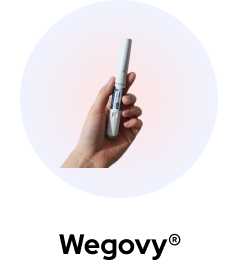You may have seen the warning on your birth control “Do not smoke while taking this medication.”
But does that apply for vaping tobacco and marijuana?
Can You Vape on Birth Control?
It is not prohibited to vape while taking birth control, but it is better to avoid it. Vaping while on birth control raises important health considerations. Birth control pills and other hormonal contraceptives work by regulating hormones to prevent pregnancy. Vaping, especially products containing nicotine, can potentially interact with these hormonal levels and the body’s response to birth control.
Nicotine, a stimulant found in many vaping products, can affect cardiovascular health by increasing blood pressure and heart rate. These effects can compound the risk of certain side effects associated with hormonal birth control methods, such as blood clots, stroke, and heart attack, particularly in women over 35 or those with pre-existing cardiovascular conditions.
Given these considerations, while there is no direct prohibition against vaping while on birth control, it’s crucial to assess the risks and discuss them with a healthcare provider. They can offer personalized advice based on your health history, the type of birth control you’re using, and your vaping habits.
What Happens if You Vape While on Birth Control?
Vaping while on birth control can lead to increased health risks, primarily related to the cardiovascular system. Here’s what could happen:
- Increased Risk of Blood Clots: Both nicotine intake from vaping and estrogen from some birth control methods can increase the risk of blood clots. This risk is further heightened for women who smoke or vape, particularly those over the age of 35 and those who use combined hormonal contraceptives (containing both estrogen and progestin).
- Elevated Blood Pressure: Nicotine can cause blood vessels to narrow and harden, leading to increased blood pressure. This effect, combined with the potential blood pressure effects of birth control, can strain the cardiovascular system.
- Reduced Effectiveness of Birth Control: While there’s limited research on vaping’s direct impact on the effectiveness of hormonal contraceptives, the stress it places on the body could theoretically influence hormonal balance and effectiveness.
- Compounded Side Effects: Vaping can exacerbate side effects associated with hormonal birth control, such as headaches, dizziness, and nausea. This is due to the body’s response to nicotine and the additional strain on the cardiovascular system.
Given these potential risks, it’s advisable to discuss your vaping habits with a healthcare provider if you’re using hormonal birth control. They can guide you on the best practices for maintaining your health.
Let's Get into the Science
The ingredient in cigarettes (nicotine) has side effects including increased blood pressure and an increased risk of clots in the blood. A clot can occur anywhere in the body, but when it occurs around the heart it is termed a myocardial infarction (heart attack), in the brain a stroke, and if it occurs in the lung it is a pulmonary embolism. Smoking increases your risk of stroke and that risk can increase if you are also taking birth control. (Graves, 2018)
Birth control can also increase your risk of blood clots from 1-5 clots/ 10 000 women years, to 3-9 clots / 10 000 women years. (Center for Drug Evaluation and Research, 2012). If you didn’t know, pregnancy also increases your risk of blood clots to 5-20 clots/ 10 000 women years – thats a 6-10x increased risk! (Center for Drug Evaluation and Research, 2012). What this means is – you’re loading up the chances of blood clots by smoking (regardless of method) and by taking birth control.

Figure from (Center for Drug Evaluation and Research, 2012).
How to reduce the risk of blood clots
The most important thing to do is mention to your practitioner how often you smoke or vape, and in what quantity. The risk of clots increases if you smoke more frequently and if you are over 35 years of age. They can use this information to help you choose a birth control method that is most suitable for you and addresses the clotting risks.
Most women under 35 who do not smoke frequently are ok to use most types of low dose combination birth control. However, those over 35 or who are heavy smokers should stick with a progesterone-only method, IUD, patch, or ring to reduce the risk of clotting.
What Do I Do if I Want to Stop Using Tobacco or Vaping?
If you’re considering quitting tobacco or vaping, especially while on birth control, there are several strategies and resources available to support you:
- Consult a Healthcare Professional: A healthcare provider can offer personalized advice, support, and possibly prescribe medications to help you quit. They can also adjust your birth control method if necessary to reduce health risks.
- Use Nicotine Replacement Therapy (NRT): Products like patches, gum, lozenges, inhalers, or nasal sprays can help manage withdrawal symptoms and cravings by delivering small, controlled amounts of nicotine without the harmful chemicals found in tobacco or vaping products.
- Behavioral Support: Counseling, whether in person, online, or via telephone, can provide valuable support and coping strategies. Many find group support programs or one-on-one therapy beneficial.
- Educational Resources and Apps: Utilize quit-smoking programs and mobile apps designed to provide support, track progress, and manage cravings through educational resources and community support.
- Lifestyle Changes: Engage in regular physical activity, adopt a healthy diet, and practice stress-reduction techniques such as meditation, yoga, or deep-breathing exercises. These changes can improve your overall well-being and help manage cravings.
Set a Quit Date: Choose a date to stop vaping or using tobacco and prepare for it. Remove vaping products and tobacco from your environment, and inform friends and family of your decision to gain their support.
Quitting vaping or tobacco is a significant step towards improving your health, especially when using birth control. With the right strategies and support, you can successfully overcome addiction and reduce your health risks.
So what about vaping and marijuana?
There have not been many studies on the effect of vaping and marijuana. But since vapes can still have nicotine in them and marijuana can raise blood pressure, it is likely that they can have the same effect as smoking cigarettes.
It is always best to talk to your practitioner about your smoking habits before starting birth control so that you can pick an option that is right and safest for you.
Whether it’s kicking the smoking/vaping habit or finding the right birth control solution, we can help.

Reference:
Center for Drug Evaluation and Research. Information about the risk of blood clots in women taking drospirenone [Internet]. U.S. Food and Drug Administration. FDA; 2012 [cited 2022Aug3]. Available from: https://www.fda.gov/drugs/drug-safety-and-availability/fda-drug-safety-communication-updated-information-about-risk-blood-clots-women-taking-birth-control
Graves G. Contraception. In: CTC 2019: Compendium of therapeutic choices. Ottawa: Canadian Pharmacists Association; 2018. p. 1063–89.












 (US)
(US)